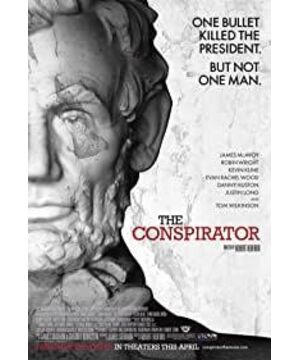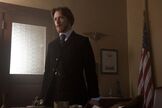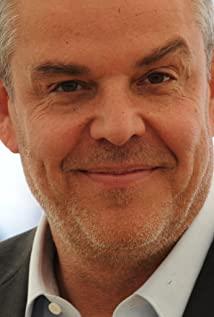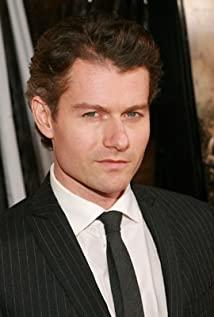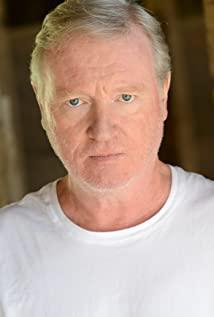Forgive me for opening the page with a remark that doesn't quite fit the movie. In fact, this sentence of Voltaire is a bit self-protective. As ordinary citizens, they should enjoy the same rights, so there is no such thing as defending the rights of others. In my shallow understanding, perhaps Voltaire's sentence means: I want to speak! When you think about it, it's actually quite ridiculous. This sage who surpassed the times has been suppressed by the times to such an extent that he has to shout for a fair right to speak.
The background of the story and the background of the times is the historical event of the assassination of President Lincoln after the end of the American Civil War. From the point of view of the people, the assassination of such a beloved president, it is natural to be excited, to defend to the death the fruits of peace and victory that President Lincoln had exchanged for his life, and to severely punish the lawbreakers. Originally, it was understandable, but the author happened to think of Le Pen's "The Crowd", so I had some new understanding of the emotion of "indignation". On the basis of this indignation, some new forces, destructive forces, will erupt, replacing rational passions. All those who have this indignation have spontaneously formed a group, and as a group, it is characterized by low reasoning ability. Exaggerated, susceptible to suggestion and domination, blind worship. It is not difficult to imagine that if there is a leader at this time, the people will not begrudge one life, or even a few lives, the law will become a dead letter at this time, and the people will generally think that they are doing justice, and that the unjust deceased. It also became the embellishment on the tombstone of President Lincoln.
It is no coincidence that the clock of history was moved forward by more than half a century from the Civil War, and the location spanned several latitudes and longitudes. On July 14, 1789, the people of Paris stormed the Bastille. I remember that there was such a line in history textbooks before, And I also have a deep understanding of the word "capture". So now we might as well explore the truth of history. After the so-called capture, there was a massacre, first of all the warden himself, who was executed by a butcher by slitting his throat, the executioner elected by a group of enthusiastic people. Next came the nobles in the prison, who were executed Ling Chi one after another, accompanied by the cheers of the torturers. Next, the slaughtered homeless people, some elderly people, and fifty-odd children. Please forgive the author's bland tone, because it did not match the situation at the time, when people were elated. And maybe the numbers can't bring such a sense of shock, but the author really feels powerless about this.
Going a little further, let's go back to the story told in the movie. According to Le Pen, one of the immediate factors in group behavior is the leader. The leader of this incident in this film is the role of the presidential secretary (translated by myself, it may not match the actual official position, please correct me). This man has the characteristics of a leader, carries out his own beliefs, believes that these prisoners are deserved to die, does not give them a chance to plead, the country needs these people to die, and the people need these people to die. So from this point of view, the work of the captain's lawyer is really an ethereal thing, because what he challenges is not only the public prosecutor and the judge, but also thousands of people, and the powerful system behind the law. From the secretary's point of view, the lawyer's approach to this matter is a personal provocation to him. At the same time, the secretary has enlarged and projected himself onto the entire system. In this case, he cannot be questioned.
One of the perplexing points in the movie is that, even though there is no definite evidence, the mother should still be blamed. Over such a long period of time, from a bystander's point of view, we can see clearly that this mother should be released. But at that time there was almost no one standing with the captain's lawyer, who was fighting alone. And although we very much hope that he will win, even if it is just a turnaround, history ruthlessly tells you that these are just illusions, how powerless a person is when facing a group, even though this person is even more powerful than all the rest A group of people is much more rational and objective. But perhaps history does not belong to rationality and objectivity. This is just like what Le Pen said: Voltaire's wisdom may be higher than the wisdom of all mankind. What makes people feel even more ironic and terrifying is that although they can criticize these irrational people vigorously now, once they are in it, they may join the slaughter team and become the executioner of all this. The sense of despair derived from this is like: people are like this.
However, from the point of view of the film, although there was no victory in the end, the captain's lawyer still achieved a glimmer of light, which to some extent comforted some souls who were desperate because of this. But the irony is that the mother was hanged for her son's trumped-up crime, and in the subsequent improved system, the son was acquitted. Justice, at this moment can not help but make people dumbfounded. What is more worth thinking about is that the revised system has joined the jury. The uncertainty of the jury is classified as a heterogeneous group by Le Pen, which is easy to be incited and exploited. As a group, this phenomenon is inevitable. This is the excellence of a good lawyer. , to maximize the use of the jury. But I don't know much about this system, so I won't make superficial comments.
The purpose of the film is to reflect on justice, because this matter concerns the fate of all citizens. If we don't care about this, maybe it's us who will be sent to the gallows one day. And just like the whole execution process that takes a long time in the slow motion at the end of the movie, maybe the gallows we walked on were built by ourselves. And those people in the movie who are watching from the sidelines, and those who are going to take pictures, may be just you and me. For the ending of the film, it is worth mentioning that the captain's lawyer in the film finally stopped being a lawyer and became the editor of the Washington Post. People who are concerned about the current situation should be very familiar with the Washington Post. Maybe it's really a bystander commenter, it's easier to come, just like a boring person like me.
Back to the sentence at the beginning. What are we to defend? What is the lieutenant defending in the film? The war he fought with his life brought peace. But in peace, it brought him the grief and anger that war could not bring him. The reasons for this, I am afraid, require our careful experience and deep reflection. All preaching seems weak and powerless in the face of action. However, there is nothing wrong with maintaining the spirit of independent thinking, perhaps at any time.
View more about The Conspirator reviews


